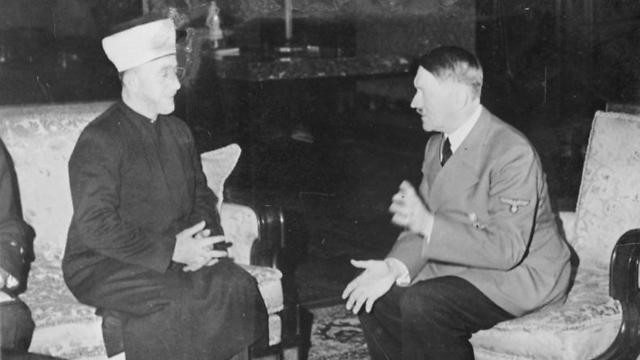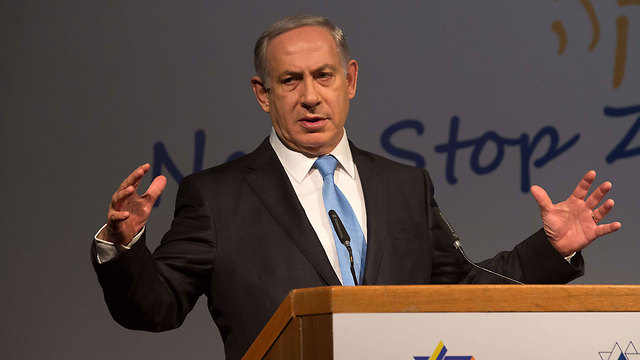Analysis: There is historical context to PM’s comment about al-Husseini’s role in the Holocaust, but Hitler didn’t need the Mufti to exterminate the Jews – birds of a genocidal feather simply flock together.
In 1937, Jerusalem’s Grand Mufti Haj Amin al-Husseini stood before the members of the Peel Commission, an investigative body created by Britain in the wake of unrest in the Holy Land.
What would be the fate of the Jews? The Mufti’s evasive answer left no doubt in the minds of the commission members.
Among its conclusions, the commission stressed the massacre of the Assyrian minority in Iraq in order to illustrate that the Jews were likely to meet a similar end. The Mufti had already been the chief inciter and architect of the al-Aqsa plot, stirring up fear that Jews meant to demolish the Mosque. Then as now, that fear inflamed public sentiment and encouraged people to attack Jews.

The Mufti then continued to Iraq. There, in collaboration with the German ambassador, he organized the Farhud, popular attacks against Baghdad’s Jewish population, in 1941. It wasn’t the first pogrom against Jews in a Muslim country, but it was the first Nazi pogrom.
After fleeing to Berlin, together with Rashid Ali, the ousted pro-Nazi prime minister of Iraq, the Mufti met with Hitler in 1941. The industrial murder of the Jews had already begun. The Mufti requested that the effort be expanded to the Arab world.
Within this context, Prime Minister Benjamin Netanyahu’s comments this week are based on a document from Dieter Wisliceny, Eichmann’s right-hand man, who said after the war that the Mufti played a key role in encouraging Hitler and Himmler in all matters pertaining to their factories of death.

Subsequently, when General Rommel’s drive through North Africa reached the outskirts of Egypt, it was completely clear that the Mufti was planning to join forces with the Nazis in order to expand their extermination to the Mandate of Palestine and other areas.
But it wasn’t only Jews who prepared for the onslaught. Even Arabs who were rivals of the Mufti – who proved during previous revolts in the 1930s that his gangs would murder his political rivals even more than the Jews – began to flee.
In effect, many historians attribute the Mufti with splintering Arab society in the Mandate of Palestine. Even after Rommel’s defeat in the Battle of El Alamein, the Mufti continued in his genocidal attempts and even crafted Operation Atlas in an effort to poison the water in Tel Aviv with the use of German paratroopers. The operation failed.
The fact that the Mufti was a devout Nazi is not up for debate. In all matters concerning the systematic murder of Jews, he seems to have been a Nazi before the Nazis even existed. But Wisliceny’s claims created controversy among historians.
In any case, there’s no reason to give Hitler a free pass. He certainly didn’t need the Mufti in order to hate the Jews and the Mufti didn’t need him. They simply found soul mates in one another. After all, birds of a feather flock together.
As reported by Ynetnews
